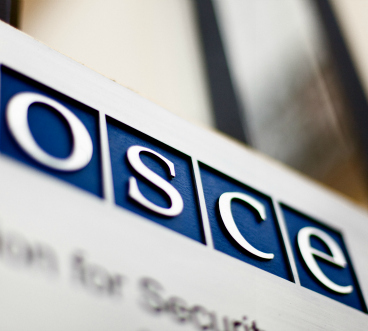Mr. Speaker, today I am introducing a resolution commemorating the 25th anniversary of the Helsinki Final Act, an international accord whose signing represents a milestone in European history. As Chairman of the Commission on Security and Cooperation in Europe, also known as the Helsinki Commission, I have been privileged to be associated with the Helsinki process and its seminal role in advancing human rights, democracy and the rule of law in Europe. I am pleased to be joined by my fellow Helsinki Commissioners Representatives Hoyer, Wolf, Cardin, Salmon, Slaughter, Greenwood, Forbes and Pitts as original cosponsors. A companion resolution is being introduced today in the Senate by Helsinki Commission Co-Chair Sen. Ben Nighthorse Campbell.
The Helsinki Final Act and the process it spawned have been instrumental in consigning the Communist Soviet Empire, responsible for untold violations of human rights, into the dustbin of history. With its language on human rights, the Helsinki Final Act, for the first time in the history of international agreements, granted human rights the status of a fundamental principle in regulating international relations. The Final Act’s emphasis on respect for human rights and fundamental freedoms is rooted in the recognition that the declaration of such rights affirms the inherent dignity of men and women and not privileges bestowed at the whim of the state.
Equally important, Mr. Speaker, the standards of Helsinki which served as a valuable lever in pressing human rights issues also provided encouragement and sustenance to courageous individuals who dared to challenge repressive communist regimes. Many of these brave men and women, members of the Helsinki Monitoring Groups in Russia, Ukraine, Lithuania, Georgia, Armenia, and similar groups in Poland and Czechoslovakia, Soviet Jewish emigration activists, members of repressed Christian denominations and others, paid a high price in the loss of personal freedom and, in some instances, their lives, for their active support of principles enshrined in the Helsinki Final Act. Western pressure through the Helsinki process, now advanced in the forum of the Organization for Security and Cooperation in Europe, greatly contributed to the freeing of the peoples of the Captive Nations, thus bringing an end to the Cold War.
The Helsinki Commission, on which I have served since 1983, played a significant role in promoting human rights and human contacts. The congressional initiatives such as hearings, resolutions, letters and face-to-face meetings with representatives of Helsinki signatories which violated human rights commitments, encouraged our own government to raise these issues consistently and persistently. The Commission’s approach at various Helsinki meetings has always been to encourage a thorough and detailed review of compliance with Helsinki agreements. Specific cases and issues are cited, rather than engaging in broad, philosophical discussions about human rights. With the passage of time, and with the leadership of the United States, this more direct approach in pressing human rights concerns has become the norm. In fact, by 1991 the Helsinki signatory states accepted that human dimension commitments `are matters of direct and legitimate concern to all participating States and do not belong exclusively to the internal affairs of the state concerned.’
With the dissolution of the Soviet Union and Yugoslavia, the OSCE region has changed dramatically. In many States, we have witnessed dramatic transformation and a consolidation of the core OSCE values of democracy, human rights and the rule of law. In others, there has been little if any progress, and in some, armed conflicts have resulted in hundreds of thousands having been killed and in the grotesque violation of human rights. The OSCE, which now includes 54 participating States, has changed to reflect the changed international environment, undertaking a variety of initiatives designed to prevent, manage, and resolve conflict and emphasizing respect for rule of law and the fight against organized crime and corruption, which constitute a threat to economic reform and prosperity. The Helsinki process is still dynamic and active, and the importance of a vigorous review in which countries are called to account for violations of their freely undertaken Helsinki commitments has not diminished.
This resolution calls on the President to issue a proclamation reaffirming the United States’ commitment to full implementation of the Helsinki Final Act. All signatory states would be asked to clarify that respect for human rights and fundamental freedoms, democratic principles as well as economic liberty, and the implementation of related commitments continue to be vital elements in promoting a new era of democracy, peace and unity in the OSCE region. In the twenty-five years since this historic process was initiated in Helsinki, there have been many successes. Mr. Speaker, the task is still far from complete, and we must continue to do our part in championing the values that Helsinki espouses.











